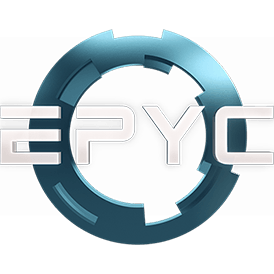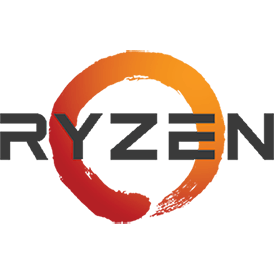
What's the best choice AMD Ryzen 7 3700C or AMD Epyc 7301? Which processor is faster?
We have prepared a comparison to help you choose the best processor. Compare their specifications and benchmarks.
AMD Ryzen 7 3700C has a maximum frequency of 2.30 GHz. 4 Cores. Power consumption of 15 W. Released in Q3/2020.
AMD Epyc 7301 has a maximum frequency of 2.20 GHz. 16 Cores. Power consumption of 170 W. Released in Q3/2017.
 Reasons to consider
Reasons to consider Place in the overall ranking
(based on several benchmarks)
Higher clock speed
Around 4% better clock speed
Higher turbo clock speed
Around 33% better overclocked clock speed
Performance per watt
times less performance per watt
Common positions AMD Ryzen 7 3700C CPU in popular benchmarks, for comparison with other models.
 Reasons to consider
Reasons to consider Place in the overall ranking
(based on several benchmarks)
More number of cores
About 4 times more cores
Common positions AMD Epyc 7301 CPU in popular benchmarks, for comparison with other models.
 AMD Ryzen 7 3700C
AMD Ryzen 7 3700C

Background information about the processors being compared, series, generation and market segment.
Basic parameters such as number of cores, number of threads, base and turbo frequency, and cache size. These parameters indirectly tell about the speed of the processor, the higher they are the better.
Internal Graphics does not affect the performance of the CPU, performs the work of the graphics card in its absence or on mobile devices.
Built-in codecs used to encode and decode content. Significantly speeds up the required operations.
Types, channel quantity of RAM supported by AMD Epyc 7301 and AMD Ryzen 7 3700C. Depending on the motherboards, higher or lower memory frequencies may be supported.
Compare the TDP requirements of TDP AMD Ryzen 7 3700C and AMD Epyc 7301 to select a cooling system. Note, the TDP value refers to thermal watts, not electrical watts.
Architecture, interfaces, additional instructions supported by AMD Ryzen 7 3700C and AMD Ryzen 7 3700C, virtual machine technologies and process technology.
Based on the results of several benchmarks, you can more accurately estimate the difference in performance between AMD Ryzen 7 3700C and AMD Epyc 7301.
Compare the synthetic test values and choose the best processor!